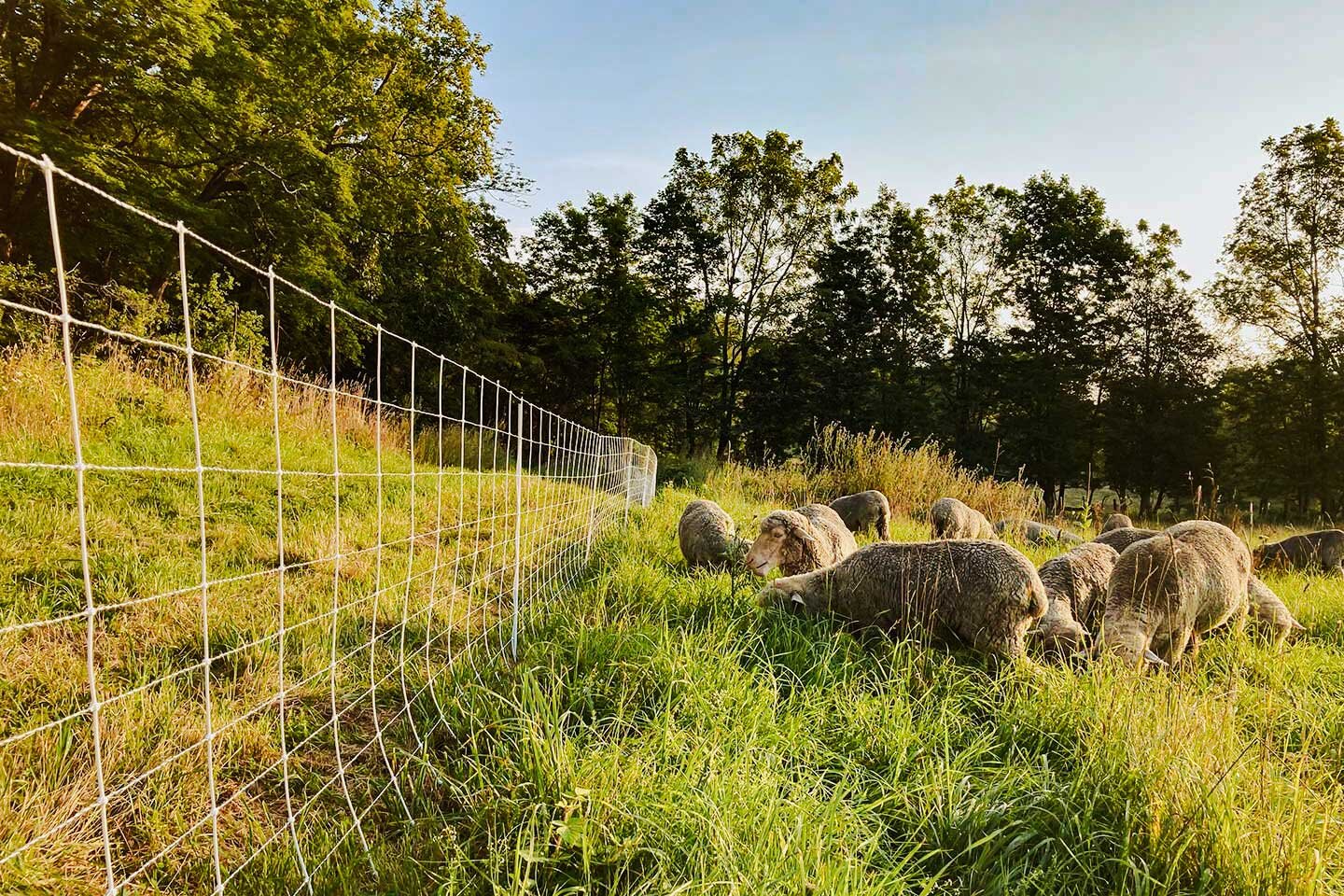Too Many Apples Are Good For the Customer by Eugene Wyatt
New Premier electric net fence - isn’t it a beauty?
Dec 23rd, 2005
There are ways not to talk sheep with me. Some people ask me if I have problems with coyotes and to make sure they never ask that question again, I tell them about predation in detail to watch horror spread its expression over their faces. And some people ask me how many sheep I have; I suppose they need numbers to size themselves up by sizing other people down; they must be of the demographic that weighs the "Do you measure up?" spam, and they buy those enhancing herbal pills to "Impress her." I give them a sheep number to impress, not to make me feel big, but to make them feel small. Life is a series of momentary joys, some nicer than others.
A small sheep farm is a composite of many relations, the sheep to the land, the farm to the market, etc. and the weather is always a factor.
But let's focus on the farm-market relation. Greenmarket's mission "...preserves farmland for the future by providing regional small family farmers with opportunities to sell fruits, vegetables and other farm produce to New Yorkers." This is a noble undertaking for the health of the small farmer, the health of the land, and the health of New Yorkers.
A major concern of the small farmer and of Greenmarket management, one that directly relates to farmland preservation, is product balance in a market. A balance is to be struck between too many apples at market and too few. This is not always easy to implement. Product balance has consequences for the farmers and for the shoppers. Too many apples are good for the shopper: more choice; but bad for the individual farmer: less income; and the converse is also true.
When this balance is improperly struck, Greenmarket does not fulfill its mission to preserve farmland as well as it could; with too many apples at market, the income of every apple farmer is diminished; on the other hand, with too few apples at market, Greenmarket doesn't help to preserve the farmland of the apple farmers who could be at market selling apples to pay the mortgages and taxes on their land. Product balance makes a healthy market; it is difficult to achieve.
But loss is loss. The difference between loss from product imbalance and loss from predation is one of time. When coyotes kill sheep, I suffer the loss later; I won't have the wool or lamb from those sheep to sell in the future. When products are imbalanced at market, too much wool or too much lamb, I suffer the loss immediately from diminished sales. Product imbalance and predation both contribute to the loss of farmland by diminishing farm income, one now and the other later. Greenmarket, the shopper, the farmer, the land, the sheep; everybody loses except the coyote. I do my best to protect my sheep and the land on which they live; Greenmarket does its best to help me preserve that farmland for my sheep—let's hope we can do even better in the coming new year.
Eugene Wyatt







